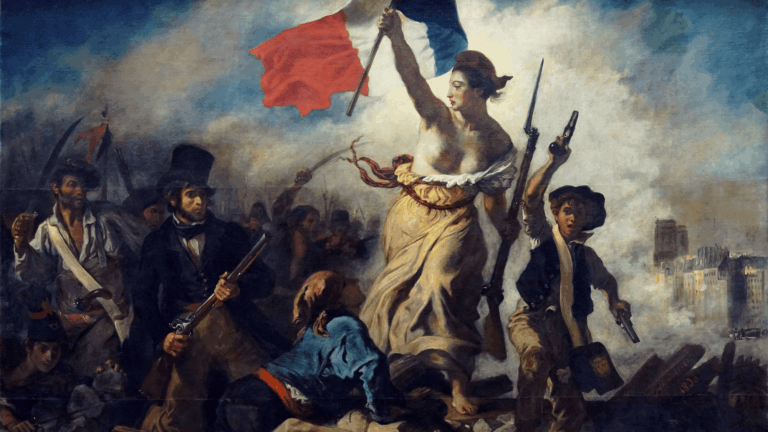
CORE 104: Change and the Future
CORE 104: Change and the Future interrogates dominant systems of power and ideology and the people, moments, and movements that have risen to challenge them. In a word, the course is about revolutions. Employing an interdisciplinary social sciences lens, students explore competing visions of the future and the continual process of change.
CORE 101, 103, and 104 may be taken in any order, in any semester. Students are encouraged to take courses when a particular iteration speaks to their interests.
Sample Course Descriptions
T.O. faculty are tasked with iterating variations on the CORE 104 theme, Change and the Future. Accordingly, there are as many versions of CORE 104 as there are professors who teach it. Here are just a few recent examples.

Monuments of Memory:
Rewriting BIPOC Histories in Place and Public Memory
Professor Natalia Molina, Department of American Studies & Ethnicity
This course explores the unheard stories of racialized communities and workers in the United States. We will delve into narratives of people and places often marginalized in traditional historical accounts, examining major topics and themes such as slavery, displacement, forced removal, migration, immigration, and representation. Through case studies and model texts, we will shed light on the struggles and perseverance of working people and examine the ways in which they have, and have not, been memorialized.
In the first part of the course, we will explore issues of history and memory through readings. In the second half, we will take our questions about historical memory and erasure to Southern California. Whose story gets told, and how do we tell it? History is taught not only through textbooks but also through commemorations, statues, and plaques. Monuments and memorials are ways that we publicly convey these histories. By examining the landscape of a nation and a city’s public memories, we can see whose stories are highlighted and whose are overlooked or even erased. We will investigate how we might intervene in the public memorial landscape to tell a more complicated, nuanced history from different vantage points. Let’s rewrite history from the ground up.
Texts
- Clint Smith. How the Word is Passed: A Reckoning with the History of Slavery Across America.
- Erin L. Thompson. Smashing Statues: The Rise and Fall of America’s Public Monuments.

Sovereignty, Globalization, Responsibility, and Intervention
Professor Steven Lamy, Department of Political Science & International Relations and the Spatial Sciences Institute
With Russia’s invasion of Ukraine, NATO’s aggressive response, and the conflict in Gaza, we are seeing the changing nature of war and the importance of security, responsibility, and sovereignty. We are also seeing how difficult it is to apply collective security and multilateralism and provide defense even when treaties demand intervention. Since 1648 and the treaties that created the Peace of Westphalia, sovereignty and autonomy of states have been primary rules governing international relations. Nationalism promotes the idea of sovereignty, and there are more issues as well as state and non-state actors challenging the assumptions and expectations of sovereignty. Consider how globalization has challenged governments and how nationalism and sovereignty concerns often prevent cooperation in many policy areas.
The current wars in Ukraine and Gaza are about national security and national sovereignty, but also about human security and human sovereignty. We are reminded of the primary responsibilities of states: protect their citizens, provide security, and provide ways for citizens to achieve economic well-being.
In this class, we will explore several thematic questions including: What actors are responsible for preventing conflict, responding to crises, and rebuilding societies ravaged by war, climate change, and failed governance? If a state or states are not fulfilling their basic duties, do we allow these states to descend into chaos and conflict? Given the principles of noninterference articulated in the Westphalian tradition and repeated in international covenants and agreements, should other states or international or regional organizations intervene to protect those people suffering? Is there an obligation to respond and prevent further violence and human suffering?
In the first part of the course, we will review the critical skills any citizen in this world needs to know. This is not about being an international relations or global studies scholar: it is about being an effective citizen and problem-solver and maybe a future policy-maker. So, we will look at theories and narratives (English School traditions and beliefs) that shape how we see the world, how we react to humanitarian challenges, and whether a country decides to intervene in another nation-state.
In the second part of the course we will explore global security challenges. Wars, violence, poverty, environmental degradation and climate change, human rights abuses, and pandemics are all threats to human security and are all pushed and enhanced by globalization.
In the third part of the course, we will explore the increase in interventions such as military enforcement, sanctions, and various types of humanitarian intervention. This form of interference has increased as failed and fragile states increase in number. We also review how state and non-state actors have succeeded or failed to manage globalization.
We will explore in some detail both successful and unsuccessful attempts to prevent, protect, and rebuild collapsed societies and failed systems of governance. In this section we explore new conceptions of sovereignty that suggest that it is no longer exclusively about protecting states from foreign interference; it is a charge of responsibility that holds states accountable for the welfare of their people.
This is an active learning course, and we will discuss several Harvard Kennedy School case studies and explore humanitarian challenges by applying problem-based learning exercises. In each course section, we will explore relevant case studies seeking to understand the elements of effective humanitarian efforts and to understand why some humanitarian efforts have failed. Do we as human beings have any responsibility to save strangers?
Texts
- Michael Doyle. Ways of War and Peace: Realism, Liberalism, and Socialism.
- Human Rights Watch, Situ Research, and Truth Hounds. “Beneath the Rubble: Documenting Devastation and Loss in Mariupol.”
- Peter Singer. The Ethics of Globalization.
- Additional selections, including case studies from the Harvard Kennedy School and United Nations reports, to be provided in class.

Theories of Decolonization and Revolution
Professor Neetu Khanna, Department of Comparative Literature
This course examines a transnational body of political and philosophical literatures whose primary theoretical focus is revolution and decolonization. From anti-fascist movements in Europe, and Soviet socialist movements in Russia, to anti-colonial and anti-racist struggles in South and Southeast Asia, Africa, the Caribbean, the Middle East, Latin America, and the U.S., this course explores the ways in which a wide range of philosophical and literary traditions aimed to document, represent, inspire, debate, and mobilize social transformation.
Throughout this course, we will explore how these various texts conceive of revolution and decolonization, as well as how they may provide a critical vantage point into the profoundly transnational circulation and cross-traffic of ideas, aesthetics, and activism, particularly between the 1930s through the 1960s throughout the decolonizing world. We will analyze these texts within the historical contexts that produce them, as well the range of artistic movements in which they emerge such as the Afro-Asian Writers Association, the Negritude and Black Power movements, the International Society for the Defense of Culture, and the All-India Progressive Writers Association. Additionally, we will explore how art and literature historically intervened into histories of empire through its engagement with colonization, militarization, exile, and migration, providing important sites of alternative imaginings of global relations. We will also chart the contemporary legacy of these political movements, ending with a study of our own city, through the histories of activism and resistance that have shaped the distinct socio-political landscapes of Los Angeles.
Texts
- Mulk Raj Anand. Untouchable.
- Mike Davis. City of Quartz: Excavating the Future in Los Angeles.
- Ruthie Wilson Gilmore. Golden Gulag: Prisons, Surplus, Crisis, and Opposition in Globalizing California.
- Karl Marx. The Communist Manifesto.
- Viet Nguyen. The Sympathizer.
- Andrei Platanov. Soul.
- Laura Pulido, Laura Barraclough, and Wendy Cheng. A People’s Guide to Los Angeles.
- George S. Schuyler. Black No More.
- Sam Selvon. Lonely Londoners.
- Rabindranath Tagore. Home and the World.

“You Say You Want a Revolution?”
The American 1960s
Professor Alice Echols, Van Hunnick Department of History and Department of Gender & Sexuality Studies
No decade carries more symbolic heft or has attracted more attention from writers, scholars, and pundits than the 1960s. For the right, it was the worst of times, when America went off the rails as a pernicious culture of excess and permissiveness gripped the country. For the left, it was a time of democratic hope as racial and sexual minorities, women, and young people challenged the country to commit itself to its core principles of liberty and freedom for one and all. Yet what many accounts—right and left—share is the belief that the decade represented a moment of sudden rupture. This course pushes back against the idea of Sixties exceptionalism by showing that change stretched back to the Fifties and extended well into the Seventies, and by demonstrating that the transformations we associate with this decade had longer histories than is often acknowledged.
This CORE 104 familiarizes students with the protest movements of the 1960s—the movement to end the war in Vietnam, the struggles of racial and sexual minorities, feminism, the hippie counterculture—and the backlash against them. Indeed, we will also examine resurgent conservatism as it grows in the wake of what many considered the end of a viable conservatism, that is, Republican presidential candidate Barry Goldwater’s terrible defeat in 1964. Throughout, we will study the formidable obstacles progressive activists faced. We will also explore how activists sometimes ended up advancing ideas and approaches that unintentionally helped pave the way for some of the neoliberal economic policies and conservative politics that hold sway today. We will be attentive to the ways that the ideas of even the most seemingly radical activists, despite their best efforts, could remain embedded within the ideologies of the dominant culture. Indeed, this class will deepen your appreciation of the formidable obstacles facing those trying to achieve fundamental change in American society.
Texts
- Christian G. Appy. American Reckoning: The Vietnam War and Our National Identity.
- James Baldwin. The Fire Next Time.
- Alexander Bloom and Wini Breines, eds. Takin’ It to the Streets: A Sixties Reader.
- Alice Echols. Scars of Sweet Paradise: The Life & Times of Janis Joplin.

